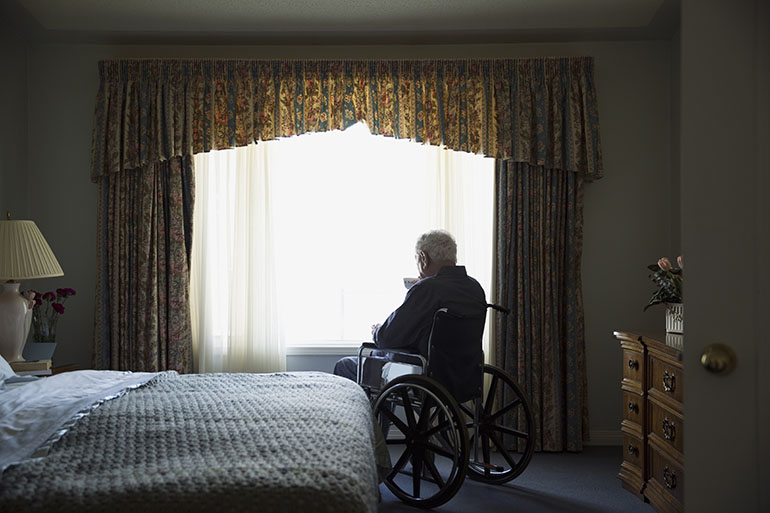As our loved ones age, their safety and mental well-being become paramount concerns. One of the pivotal aspects of ensuring their safety is through fall detection. A fall can lead not only to physical injuries but also to a significant impact on mental health. Understanding this connection is crucial for family caregivers aiming to provide comprehensive care.
In this article, we will delve into how fall detection technology plays a vital role in safeguarding the elderly and how it intertwines with their mental health. We will also explore strategies and technologies that can enhance safety and well-being, ensuring a happier and healthier life for our seniors.

Understanding Fall Detection Technology
Fall detection devices have become a cornerstone in elderly care, offering peace of mind to both seniors and their caregivers. These devices are designed to automatically detect falls using sensors and alert systems, ensuring timely assistance. As discussed in emergency contact alerts, these technologies are linked to immediate help, which is crucial in preventing further complications.
How Does It Work?
The technology behind fall detection involves a combination of motion sensors, accelerometers, and algorithms that can distinguish between normal movements and falls. When a fall is detected, the system sends an alert to pre-designated contacts or emergency services, as detailed in our overview of reliable fall detection.
Importance of Immediate Response
Immediate response to falls is critical. Quick assistance can prevent severe injuries and reduce the fear of falling again, which often plagues the elderly. Studies suggest that fear of falling can lead to a decline in mental health, causing anxiety and depression. This is where fall detection technology can make a significant difference.
The Impact on Mental Health
The relationship between fall detection and mental health goes beyond physical safety. Fear of falling is a common concern among seniors, and it can severely affect their mental well-being. When seniors are constantly worried about falling, it can lead to anxiety, reduced social interactions, and even depression.
Reducing Anxiety Through Technology
By using fall detection devices, seniors can have greater confidence in their ability to live independently. This boost in confidence can significantly reduce anxiety and enhance their quality of life. For more on how technology aids in independent living, read about smart elderly care solutions.
Promoting Social Interaction
Fear of falling can also lead to isolation, as seniors may avoid social gatherings or outdoor activities. With the assurance of fall detection, they are more likely to engage in social interactions, which are vital for maintaining good mental health.
Integrating Physical and Mental Health
While fall detection addresses the immediate physical risks, it also plays a crucial role in integrating both physical and mental health strategies. Engaging in fall prevention exercises not only strengthens the body but also boosts mood and mental resilience.
Exercise and Fall Prevention
Regular physical activity is essential in preventing falls. It improves balance, strength, and flexibility, reducing the likelihood of falls. Additionally, exercise is known to release endorphins, which positively impact mental health.
Mindfulness and Relaxation Techniques
Incorporating mindfulness and relaxation techniques can further enhance mental health. Practices such as yoga and meditation can help seniors manage anxiety and stress, providing a holistic approach to well-being.
Challenges and Considerations
Despite the benefits, there are challenges in the adoption of fall detection technology. Concerns about privacy and the accuracy of these devices are common. It’s essential to choose devices that are reliable and have positive reviews, as discussed in safety considerations for seniors.
Privacy Concerns
Seniors may be concerned about the invasion of privacy. It’s important to select devices that offer privacy options and to reassure users about the security measures in place.
Accuracy of Devices
The accuracy of fall detection devices is crucial. False alarms can create unnecessary anxiety, while missed detections can lead to severe consequences. Therefore, choosing a reliable device is paramount.
The Future of Fall Detection and Mental Health
As technology advances, the integration of fall detection and mental health strategies is expected to become more sophisticated. Innovations in AI and machine learning are anticipated to enhance the accuracy and functionality of these devices.
AI and Machine Learning
AI has the potential to revolutionize fall detection by improving the precision of fall detection algorithms. This will lead to fewer false alarms and more accurate detections, further enhancing the safety and well-being of seniors.
Holistic Health Monitoring
The future will likely see a more integrated approach, where fall detection devices monitor overall health parameters, providing a comprehensive health overview. This holistic approach will better address both physical risks and mental health needs.
Conclusion
In conclusion, fall detection technology is not just about preventing physical injuries; it plays a significant role in improving mental health by reducing anxiety, encouraging social interaction, and promoting a more active lifestyle. As caregivers, understanding and utilizing these technologies can provide a safer and happier environment for our loved ones.
For further information on fall prevention, you can visit the Health in Aging website.

FAQs
1. How does fall detection technology work?
Fall detection technology uses sensors and algorithms to differentiate between normal activities and falls, sending alerts when a fall is detected.
2. Can fall detection improve mental health?
Yes, by reducing the fear and anxiety associated with falling, fall detection can significantly enhance mental health.
3. What are the challenges of using fall detection devices?
The main challenges include privacy concerns and the accuracy of these devices. It is essential to choose reliable and well-reviewed products.
This article contains affiliate links. We may earn a commission at no extra cost to you.






